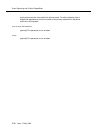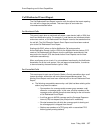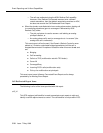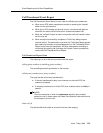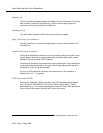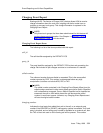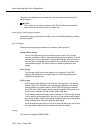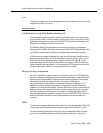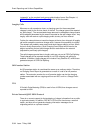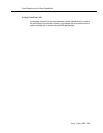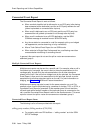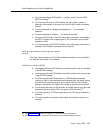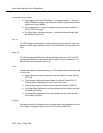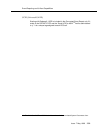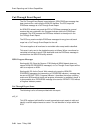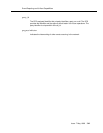
Event Reporting and U-Abort Capabilities
3-34 Issue 7 May 1998
“automatic” on the required trunk group administration forms. See Chapter 14,
‘‘DEFINITY ECS Administration Forms’’ Section of this document.
Lengthy Calls
Whenever a call exceeds ten hours, a charging event for the accumulated
charges is sent for the first ten hours of the call. The charge type will be reported
as ‘‘split charge’’. The accumulated charge amounts in subsequent charge events
will be adjusted downward by the amount reported as the split charge event. Very
lengthy calls will receive a split charging event at every ten-hour interval.
Further, the network does not reset its charges at the ten-hour intervals. A lengthy
call could exceed the maximum charge value, however this possibility is unlikely.
The network will probably wrap around and send charges starting at zero. When
the trunk finally disconnects, a final Charging Event Report will be sent to the
adjunct containing the last valid charge amount received from the network
(adjusted for previously split charges).
The split charges reported due to lengthy calls are not part of CDR Call Splitting.
These charges will be reported whether or not CDR outgoing call splitting is
enabled. In addition, these charges will include a Party Identifier IE, unlike those
generated as part of CDR Call Splitting.
Off-Premises Station
An Off-premises station is considered the same as an ordinary station. Therefore,
no Charging Event Report is generated as a result of a call to an off-premise
station. The extension number for an off-premise station can be the charging
number associated with an outgoing call over an AOC trunk in a Charge Event
Report.
PPM
If Periodic Pulse Metering (PPM) is used in lieu of ISDN, then charges are not
reported to ASAI.
Private Network QSIG ISDN Protocol
There is no current support for the tandeming of charge information from a public
to a private network. In addition, DEFINITY ECS will not function as a network
switch, and thus will not generate charging information messages for an
originating switch on a private network.



